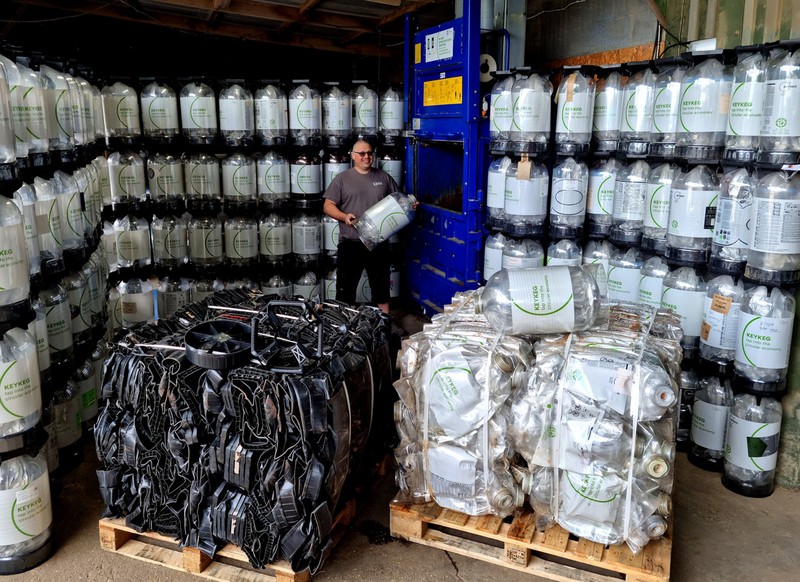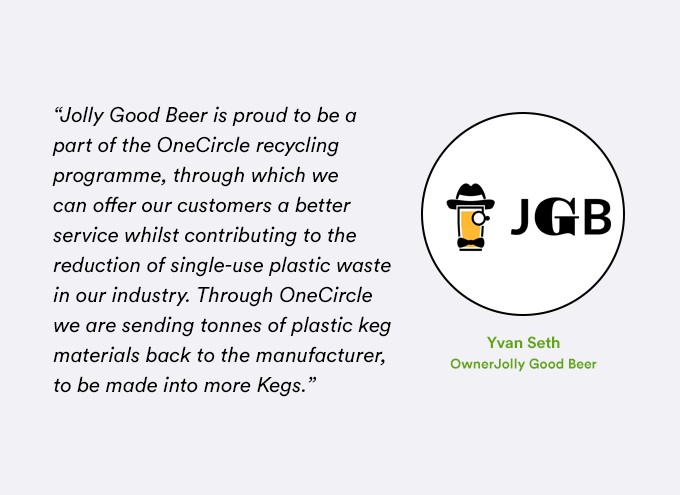Jolly Good Beer promotes UK sustainability | KeyKeg
UK Collection Network partner Jolly Good Beer continues to raise sustainability awareness
Jolly Good Beer’s environmental focus promotes a circular economy in the UK hospitality industry by collecting empty KeyKegs for closed-loop recycling.
Jolly Good Beer uses honest, transparent communication to increase recycling and improve the flow of waste material in the industry. Besides distributing independent craft beer, cider, and other beverages to pubs and bars throughout the Midlands, East and South East England, the team educate customers about the bigger environmental picture and the importance of handling sustainable plastics correctly.
The Jolly Good Beer team started collecting empty KeyKegs after local waste-management companies were unable to guarantee that circular materials are recycled correctly. Each month, Jolly Good Beer collects around 750 empty KeyKegs for recycling that may otherwise have ended up as landfill, although they aim to collect many more across the region.
Hospitality professionals from Yorkshire to London, East Anglia to the West Midlands, and everywhere in between, can now help the environment by returning all their empty KeyKegs through Jolly Good Beer. The amount of recycled material in each new KeyKeg will also steadily increase as more empty Kegs are collected, protecting precious natural resources.
Yvan Seth, Owner, Jolly Good Beer: “Jolly Good Beer is proud to be a part of the OneCircle recycling programme, through which we can offer our customers a better service whilst contributing to the reduction of single-use plastic waste in our industry. Through OneCircle we are sending tonnes of plastic keg materials back to the manufacturer, to be made into more Kegs.”
Jolly Good Beer collects empty KeyKegs during deliveries, limiting the number of unnecessary journeys and reducing its carbon footprint. It then crushes and bundles the empty Kegs for us collect. We then shred, separate and sort the different plastics on an automatic recycling line to recover the raw materials. As much recycled material as possible is used to produce new KeyKeg parts, while the remainder is recycled for other uses.

